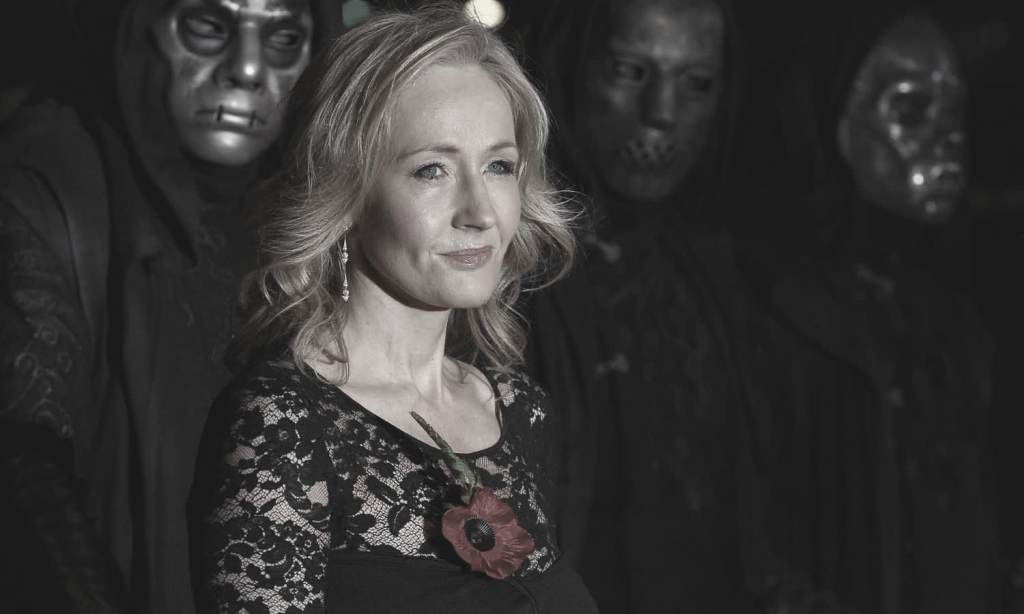Author JK Rowling knows a thing or two about a fall from grace.
The Harry Potter author has been held in high regard since the launch of the bestelling series in 1997, however, over the past month, has been called out twice for her views on the transgender community.
Fans of the writer and stars of her films, including Daniel Radcliffe, have spoken against the 54-year old, offering ways to educate on the topic as well as reporting her views.
Now, Rowling has joined 150 high-profile figures, signing an open letter which warned that free speech is under threat due to an “intolerance of opposing views”.
Published in Harper‘s magazine, the 530-word letter titled A Letter on Justice and Open Debate, has also been backed by US feminist Gloria Steinham, The Handmaid’s Tale author Margaret Atwood and linguist Noam Chomsky.
The letter welcomed protests for racial and social justice as well as greater quality across society, however, it also noted a “new set of moral attitudes and political commitments that tend to weaken our norms of open debate and toleration of differences in favour of ideological conformity.”
The letter also pointed out “also spreading more widely in our culture: an intolerance of opposing views, a vogue for public shaming and ostracism, and the tendency to dissolve complex policy issues in a blinding moral certainty.”
This type of behaviour is what millennials have coined as “cancel culture” — where someone or something is ultimately “cancelled” — being culturally blocked from having prominence in a public platform or career.

What is Cancel Culture?
You may have only just heard this term in the last few years, but “cancel culture” is so popular that it has its own entrance into Dictionary.com.
While a polarising topic, “it refers to the popular practice of withdrawing support for (aka ‘cancelling’) public figures and companies after they have done or said something considered objectionable or offensive. Cancel culture is generally discussed as being performed on social media in the form of group shaming.”
More dramatically, you might see the term “2020 is cancelled” (which, to be honest, is pretty fair), but in a more derogatory sense, it can end careers.
Australian comedian Josh Thomas experienced being “cancelled” this year after trying to, you guessed it, “cancel” Coon cheese during the Black Lives Matter movement.
The Please Like Me star put his two cents into the movement by posting an image of US branded Coon cheese, calling for it to be renamed as the term was often used in hate speech for Indigenous Australians.
The cheese itself was actually named after cheesemaker Edward William Coon and this revelation saw Thomas promptly “cancelled” by a wave of pitchfork waving cheese supporters.
https://twitter.com/JoshThomas87/status/1271972388255576064?ref_src=twsrc%5Etfw%7Ctwcamp%5Etweetembed%7Ctwterm%5E1271972388255576064%7Ctwgr%5E&ref_url=https%3A%2F%2Fwww.abc.net.au%2Fnews%2F2020-06-16%2Fjosh-thomas-apologises-after-coon-cheese-tweet-casting-comments%2F12360798
But that’s not all. A 2016 clip surfaced of him complaining about the difficulty when casting non-white actors. Starting on the back foot, he said: “This is going to sound racist”, before saying how hard it was to find actors from diverse backgrounds with acting experience.
With this, Thomas was promptly cancelled once again, apologising publicly and saying he was “committed to doing better”.
Whether the incident and his response are yet to make a dint on Thomas’ career, the verdict was in. He was cancelled.
But, has cancel culture gone too far? The signatures on the Harper’s open letter seem to think so.
However, Time magazine has a different take. Author Sarah Hagi says: “it’s not even real”.
“It’s a catch-all for when people in power face consequences for their actions or receive any type of criticism, something that they’re not used to.”
As Hagi points out, Louis CK admitted to masturbating in front of female comedians and after a huge uproar, he still managed to sell-out shows on his tour.

On a local scale, both Sonia Kruger and Samantha Armytage have both made remarks which they probably wish they could take back.
In 2016, Kruger called for an end to Muslim migration because she “wants to feel safe”, justifying her comments by saying it was for the “safety of citizens”. Four years on, and she’s now the host of reality TV series Big Brother.
A year earlier, Samantha Armytage praised a fair-skinned twin with a “good on her” remark, however, she never faced a professional loss.
However, when you look at most examples, very few seem to suffer massive career setbacks after being cancelled.
Although it doesn’t seem to have a lasting effect, cancel culture is a powerful force to be reckoned with.
And while it’s clear that opposing views should always be debated, a more traditional approach of “understanding, apology and acceptance” could be way more beneficial.







